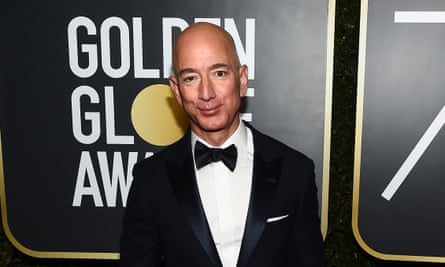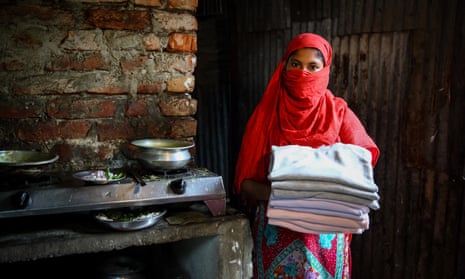The development charity Oxfam has called for action to tackle the growing gap between rich and poor as it launched a new report showing that 42 people hold as much wealth as the 3.7 billion who make up the poorest half of the world’s population.
In a report published on Monday to coincide with the gathering of some of the world’s richest people at the World Economic Forum in Davos, Oxfam said billionaires had been created at a record rate of one every two days over the past 12 months, at a time when the bottom 50% of the world’s population had seen no increase in wealth. It added that 82% of the global wealth generated in 2017 went to the most wealthy 1%.
The charity said it was “unacceptable and unsustainable” for a tiny minority to accumulate so much wealth while hundreds of millions of people struggled on poverty pay. It called on world leaders to turn rhetoric about inequality into policies to tackle tax evasion and boost the pay of workers.
Mark Goldring, Oxfam GB chief executive, said: “The concentration of extreme wealth at the top is not a sign of a thriving economy, but a symptom of a system that is failing the millions of hardworking people on poverty wages who make our clothes and grow our food.”
Booming global stock markets have been the main reason for the increase in wealth of those holding financial assets during 2017. The founder of Amazon, Jeff Bezos, saw his wealth rise by $6bn (£4.3bn) in the first 10 days of 2017 as a result of a bull market on Wall Street, making him the world’s richest man.

Oxfam said it had made changes to its wealth calculations as a result of new data from the bank Credit Suisse. Under the revised figures, 42 people hold as much wealth as the 3.7 billion people who make up the poorer half of the world’s population, compared with 61 people last year and 380 in 2009. At the time of last year’s report, Oxfam said that eight billionaires held the same wealth as half the world’s population.
The charity added that the wealth of billionaires had risen by 13% a year on average in the decade from 2006 to 2015, with the increase of $762bn (£550bn) in 2017 enough to end extreme poverty seven times over. It said nine out of 10 of the world’s 2,043 dollar billionaires were men.
Goldring said: “For work to be a genuine route out of poverty we need to ensure that ordinary workers receive a living wage and can insist on decent conditions, and that women are not discriminated against. If that means less for the already wealthy then that is a price that we – and they – should be willing to pay.”
An Oxfam survey of 70,000 people in 10 countries, including the UK, showed support for action to tackle inequality. Nearly two-thirds of people – 72% in the UK – said they want their government to urgently address the income gap between rich and poor in their country.
In the UK, when asked what a typical British chief executive earned in comparison with an unskilled worker, people guessed 33 times as much. When asked what the ideal ratio should be, they said 7:1. Oxfam said that FTSE 100 bosses earned on average 120 times more than the average employee.
Goldring said it was time to rethink a global economy in which there was excessive corporate influence on policymaking, erosion of workers’ rights and a relentless drive to minimise costs in order to maximise returns to investors.
Mark Littlewood, director general at the Institute of Economic Affairs, said: “Oxfam is promoting a race to the bottom. Richer people are already highly taxed people – reducing their wealth beyond a certain point won’t lead to redistribution, it will destroy it to the benefit of no one. Higher minimum wages would also likely lead to disappearing jobs, harming the very people Oxfam intend to help.”

Comments (…)
Sign in or create your Guardian account to join the discussion